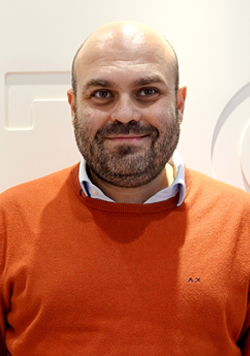FAO Reference Centre for Zoonotic Coronaviruses
Since June 2022, the Istituti Zooprofilattici Sperimentali of the Venezie and of Abruzzo and Molise have hosted the FAO Reference Centre for Zoonotic Coronaviruses, directed by Dr. Francesco Bonfante and Dr. Alessio Lorusso. The Centre focuses on assessing and managing the risk of zoonotic coronavirus circulation in animals, providing technical and scientific support to African and Middle Eastern countries to help monitor and respond promptly to such emergencies.
The FAO Reference Centre for Zoonotic Coronaviruses has been assigned to the Istituti Zooprofilattici Sperimentali of the Venezie (IZSVe) and of Abruzzo and Molise (IZSAM) for a four-year period, under the direction of Dr. Francesco Bonfante (IZSVe). The Deputy Director is Dr. Alessio Lorusso, veterinary officer and head of the Virology, Cell Cultures and Viral Antigen Development Unit at IZSAM. Since the onset of the COVID-19 pandemic, IZSAM has stood out for its extensive experience in managing epidemic emergencies in veterinary medicine. The presence of specialized laboratories and advanced IT infrastructures ensured the efficient management of sample reception, analysis, and reporting. Significant investments in cutting-edge equipment, along with the use of a high-containment biosafety laboratory, have further strengthened the Institute’s operational capacity. Moreover, the FAO Centre employs state-of-the-art genome sequencing technologies to characterize coronaviruses in various animal species.
Molecular surveillance of coronavirus circulation in domestic, wild, and synanthropic species, along with the study of their genetic characteristics, is a crucial step to ensure early detection of potentially zoonotic coronaviruses and to enable timely prevention strategies before possible spillover to humans. Several lines of research are aimed at ensuring ongoing surveillance and in-depth studies on the pathogenicity and transmissibility of coronaviruses, including investigations based on viral genome manipulation through reverse genetics. The Reference Centre provides technical and scientific support to several countries across Africa and the Middle East, with the goal of strengthening the international scientific community’s ability to promptly detect the circulation of emerging or re-emerging zoonotic coronaviruses in wildlife and domestic animals.
- + - Head
-
Alessio Lorusso
Head
Dr. Alessio Lorusso has been leading the Virology, Cell Cultures and Viral Antigen Development Unit since April 2024.
Dr. Alessio Lorusso has been leading the Virology, Cell Cultures and Viral Antigen Development Unit since April 2024.
He graduated in Veterinary Medicine from the University of Bari in 2005. During his training, he was a Visiting Student with the Mycoplasma Study Group at the Veterinary Laboratory Agency in Surrey, United Kingdom. Between 2006 and 2008, he continued his research as a Visiting PhD Student at the Virology Unit of the Faculty of Veterinary Medicine in Utrecht, the Netherlands, where he worked on the innovative project “Manipulation of the canine coronavirus type II genome through targeted recombination.” He earned his PhD in Animal Health and Pathology in 2009. From 2009 to 2011, he worked as a Post-Doctoral Research Microbiologist at the USDA’s National Animal Disease Center (NADC) in Ames, Iowa (USA), contributing to the project “Molecular epidemiology, pathogenesis and genome manipulation of swine influenza viruses,” with a particular focus on the 2009 H1N1 pandemic influenza virus.
From 2011 to 2016, Dr. Lorusso held a research fellowship at the Virology and Cell Cultures Unit of the WOAH Reference Laboratory for Bluetongue and West Nile virus at the Istituto Zooprofilattico Sperimentale dell’Abruzzo e del Molise. In December 2016, he became a Veterinary Officer in the same unit, and in 2017 was tasked with supporting the strategic management in identifying diagnostic and analytical activities that could benefit from the introduction of innovative genomic-based methods and advanced analytical technologies. He earned a Postgraduate Diploma in Animal Health, Farming and Livestock Production from the University of Teramo and completed a second-level Master’s degree in Healthcare and Social Care Management at Bocconi University in Milan in 2023. He is also a member of the institute’s biosafety committee.
During the COVID-19 pandemic, he coordinated the diagnostic workflow for SARS-CoV-2 in human samples, the interpretation of genomic data following sequencing, and the related research activities. He currently also serves as Deputy Director of the FAO Reference Center for Zoonotic Coronaviruses.
In his current role, he promotes and coordinates numerous research and innovation initiatives, with particular focus on staff training and the optimization of financial resources. Collaboration—both nationally and internationally—is central to his approach, fostering integration and dialogue across the various departments of IZSAM. Thanks to his experience in multicultural environments, he has stood out for his commitment to building a strong network of interdisciplinary collaborations. His work aims to position the unit as a hub for innovative research, supporting the training of younger generations and ambitiously addressing the challenges of One Health.





